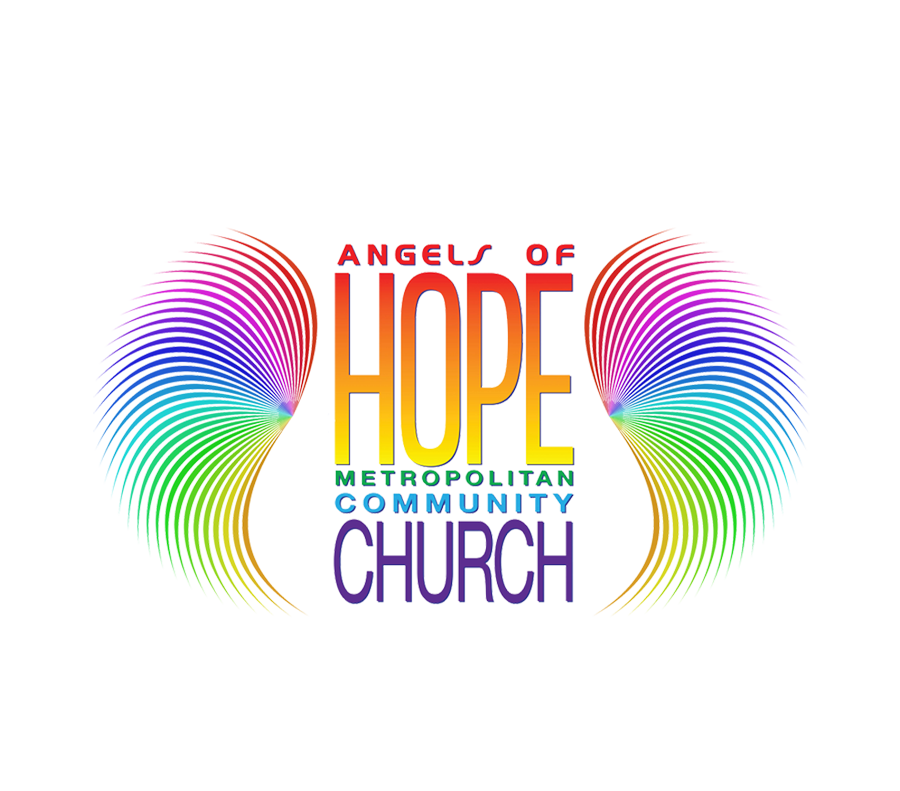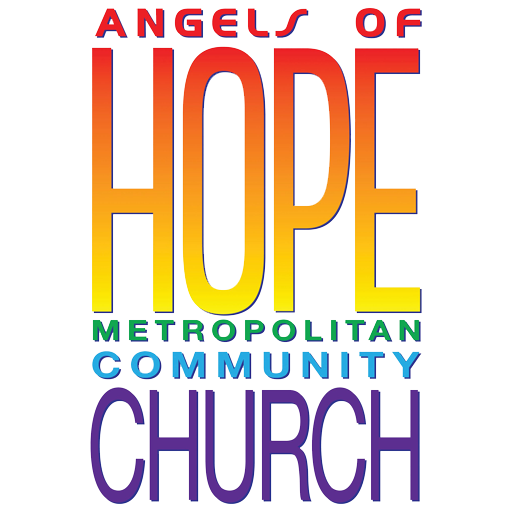Angel of Hope
Universal Fellowship of Metropolitan Community Churches (UFMCC)
Personal Memories by Bruce
I must start with some caveats: While I am starting at the beginning of Angel of Hope’s history, the chronology should be suspect, as should my memories, and these are my memories…not a history.
So, let’s begin.
I arrived in Green Bay the first week of November 1986 and was staying at the home of Jim Wulk until I got settled. He and a couple other people had recently attended a Great Lakes District Conference of UFMCC. At that conference, the District accepted a proposal to establish a UFMCC New Work in Green Bay and restart the inactive church in Milwaukee. Rev. David Calentine, who lived in Milwaukee, accepted/or was appointed the pastor for both churches.
After some negotiations regarding worship space and other practical matters, the date was set to start the churches. On November 29th, 1986, the house on Reber Street was full to overflowing with clergy and members of UFMCC from Chicago and Milwaukee. On the morning of November 30th, 1986, we met for worship at Napalese Lounge. Remember, this was 35 years ago, and it was common for new churches to meet ‘in secret’ and usually in gay bars.
At that time, a New Work was a Parish Extension of an established UFMCC Church, so we became an extension of Good Shepherd Parish (GSP) in Chicago. For a short time, that meant, while we attended membership classes, we were members of GSP. Rev. Celena Duncan was the pastor at GSP and led the classes, which were held in both Milwaukee and Green Bay.
Let’s talk about our name: a couple of years after we started, I suggested that in order to honor all those lost to the AIDS pandemic that we change our name to Angels of Hope — the plural form not the singular. And, a number of years later, the Fellowship decided to drop the ‘Universal Fellowship’ from it’s commonly used name (MCC). Therefore, we became, officially, Angels of Hope MCC (AOHMCC).
Let’s talk about our reason for being: as sad as it is, the real reason for Angels of Hope being in Green Bay is/was the AIDS crises. Numbers of gay men were coming ‘home’ in serious heath situations. We lost several members to the disease, including Rev. David Calentine. While the actual figure will never be known, a semi-official estimate is that MCC lost at least 6,000 actual Members and, of course, many thousands more friends and attendees.
Having lived through, and survived, the AIDS pandemic at it’s peak, it, to this day, affects me.
The first full year of existence was, for me, a time of learning — learning how a church is run, at the local and, at that time, the district and the fellowship levels. In the summer of 1987, we attended our first General Conference in Miami. We were, at that time, still a part of Good Shepherd Parish, and they kindly included us as a delegate with them. Thirty-five years ago, MCC was truly run by the will of the church delegates and clergy. We, AOHMCC and GSP, would caucus in our rooms and discuss the decisions to be made, who to vote for, etc. The downside of operating like this is that the business meeting went on and on for days. Though the operating system has been streamlined, the General Conference, i.e., the local churches, have the final say of all decisions.
As luck would have it, Dignity (the large group of Catholic GLBT members) was having there ‘general conference’ at a hotel just down the coast from where we were. They joined us for an interfaith worship service that turned out to be FABULOUS! Literally thousands of us in the same room made for an extremely moving event. Marsha Stevens sang her hit ‘For Those Tears I Died,’ which left most everyone in tears as well.
The AIDS epidemic was already taking a heavy toll on the MCC membership. The memorial service was extremely taxing — all the names of those who had died. Looking around, it was not hard to tell who was sick. At times, the atmosphere was very heavy…sad…almost morose. The stories of the infected being treated badly by large segments of this country was infuriating. Do not forget that in 1987 AIDS was still ‘the gay disease’ and MCC was one of the very few religious groups to be supportive of the sick and dying.

